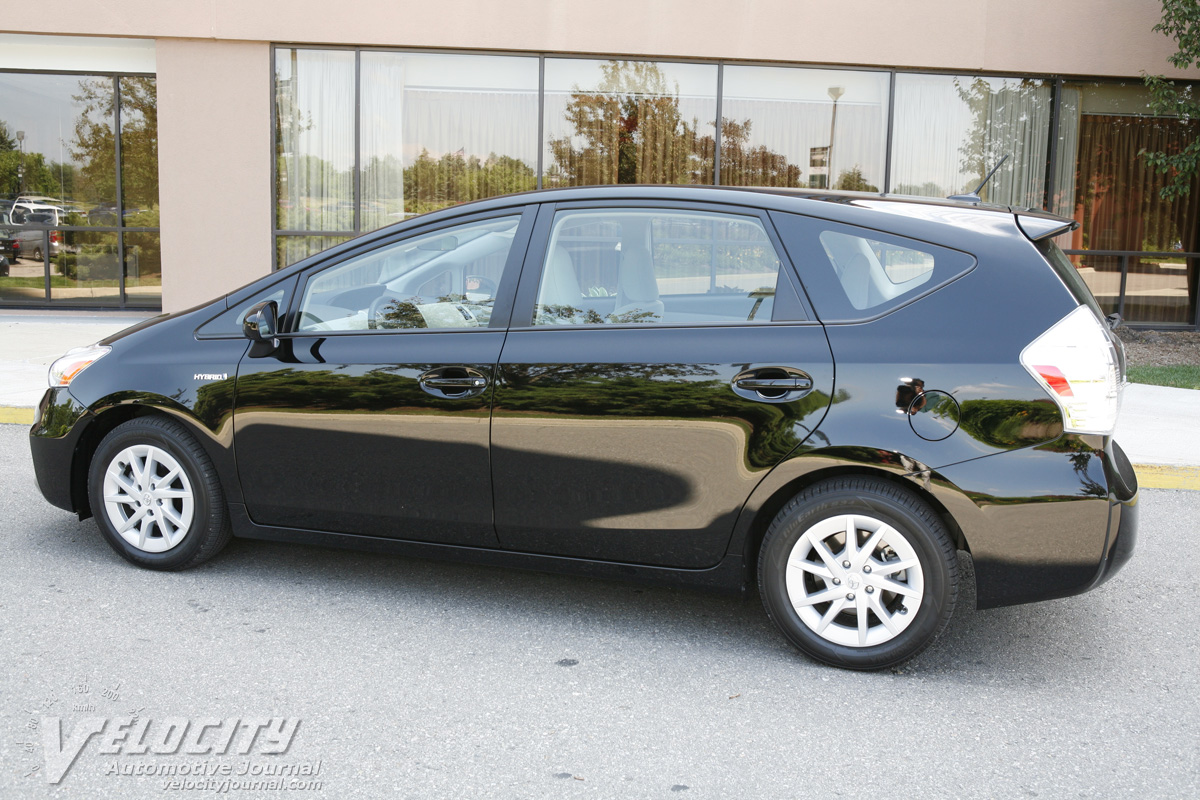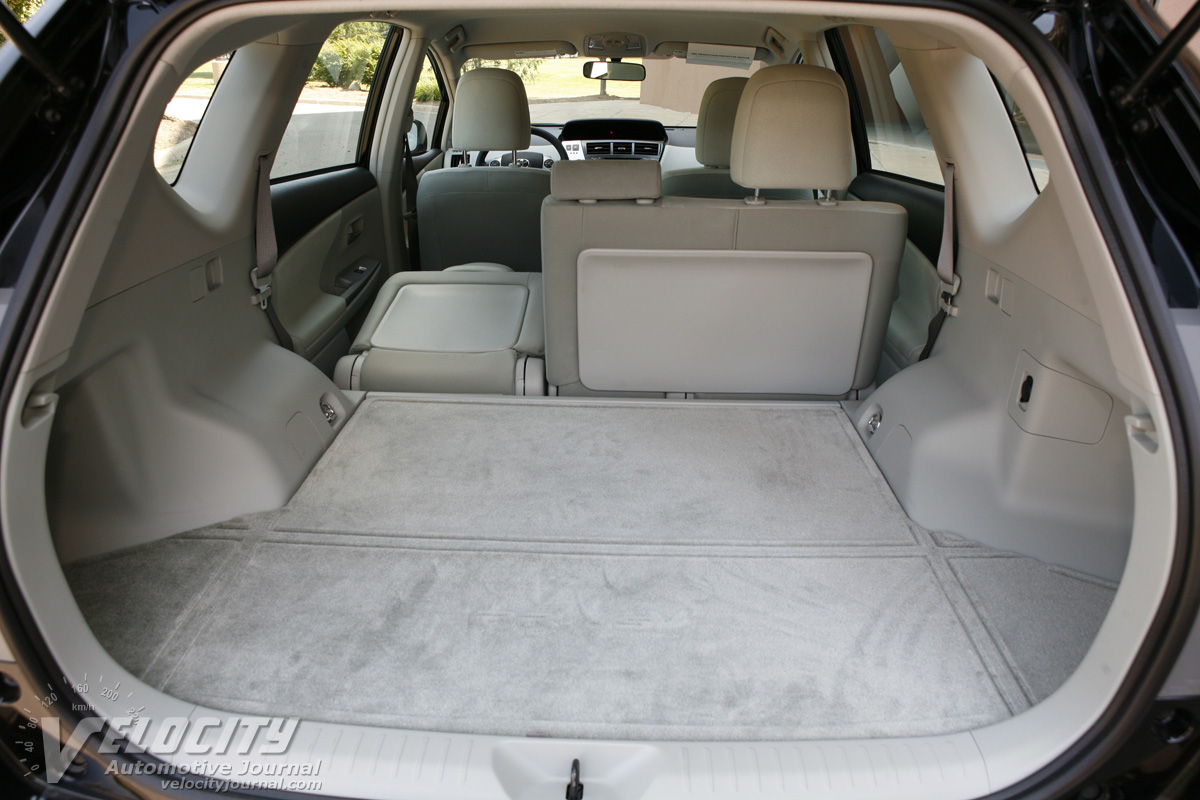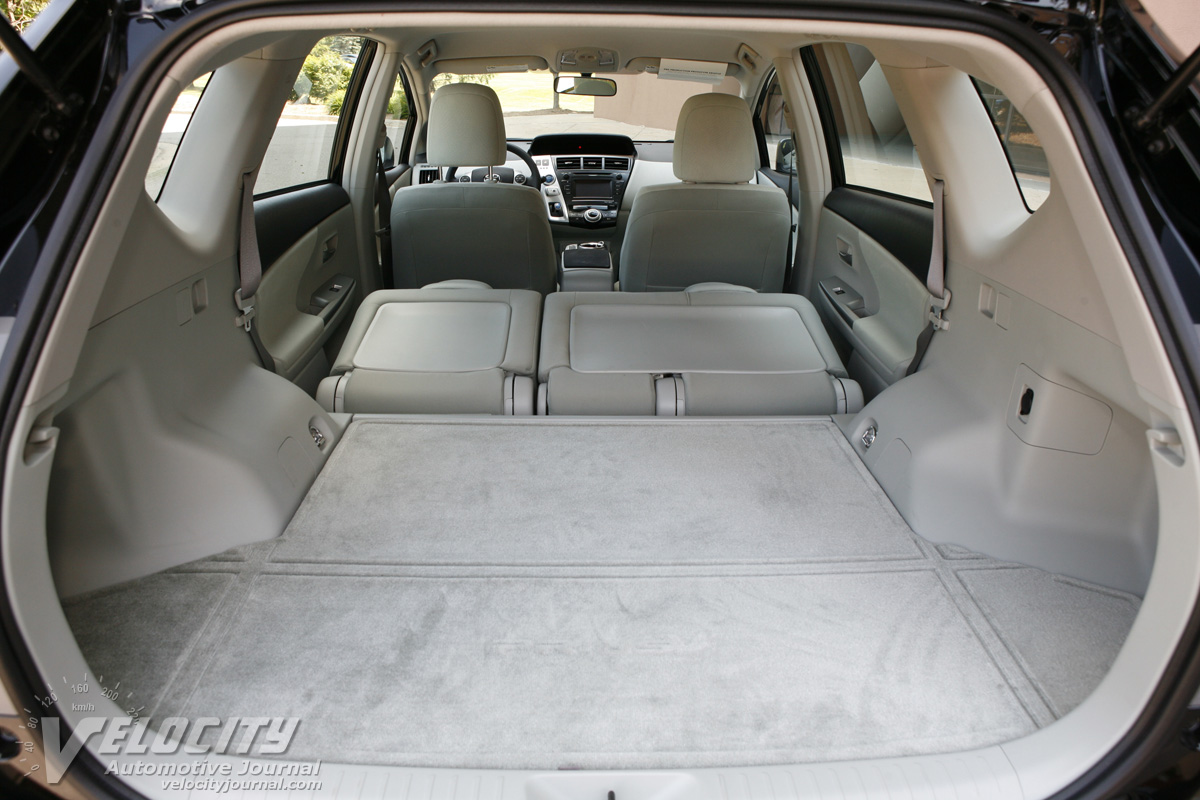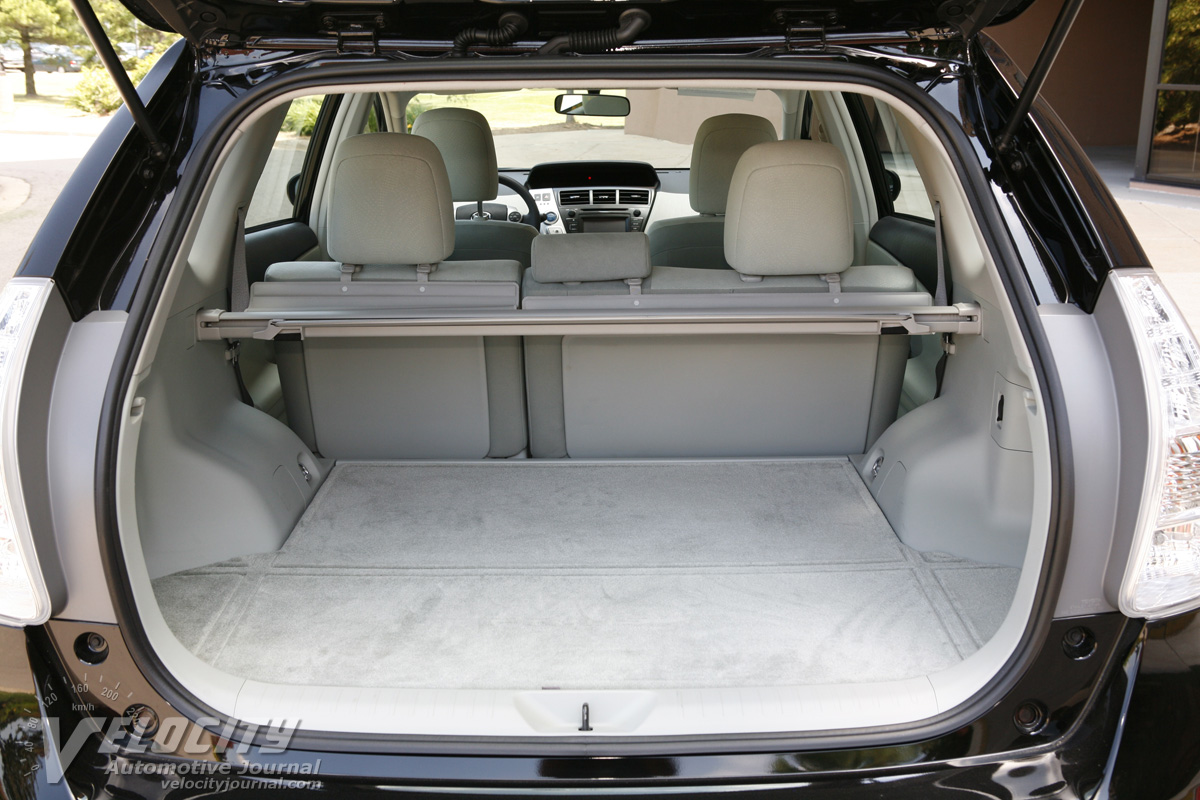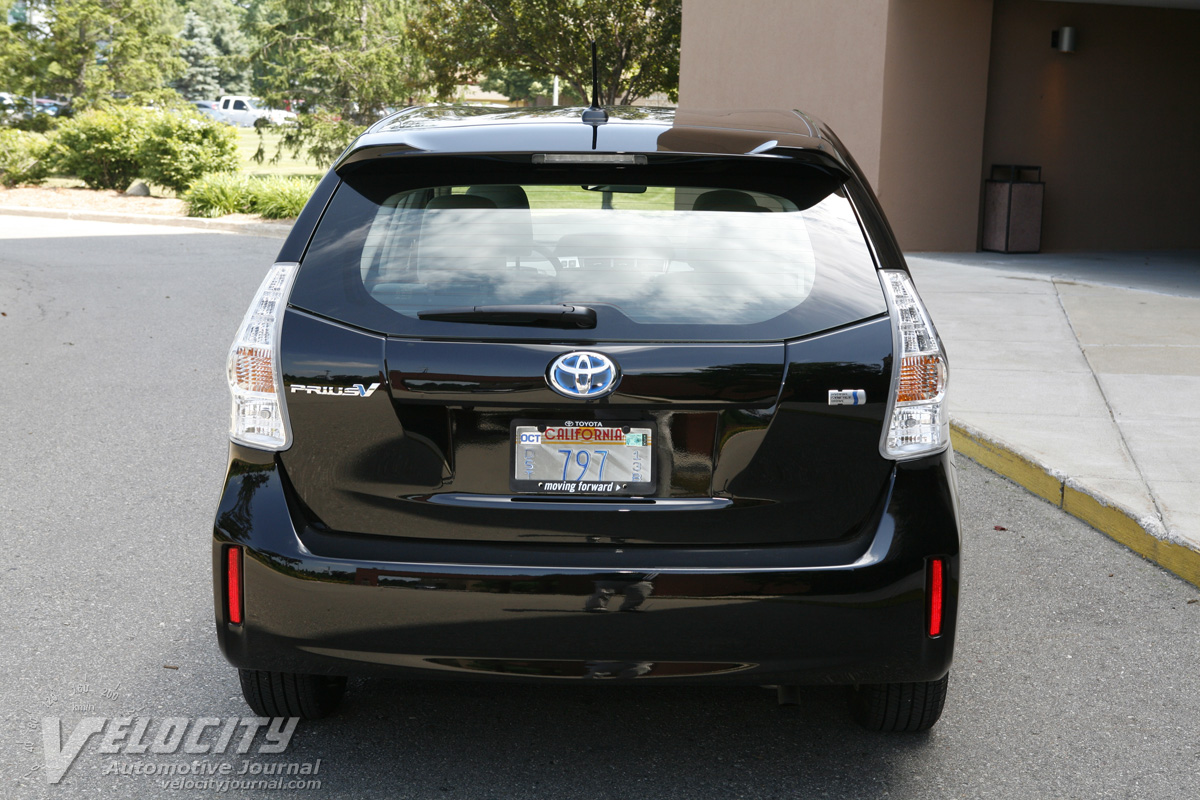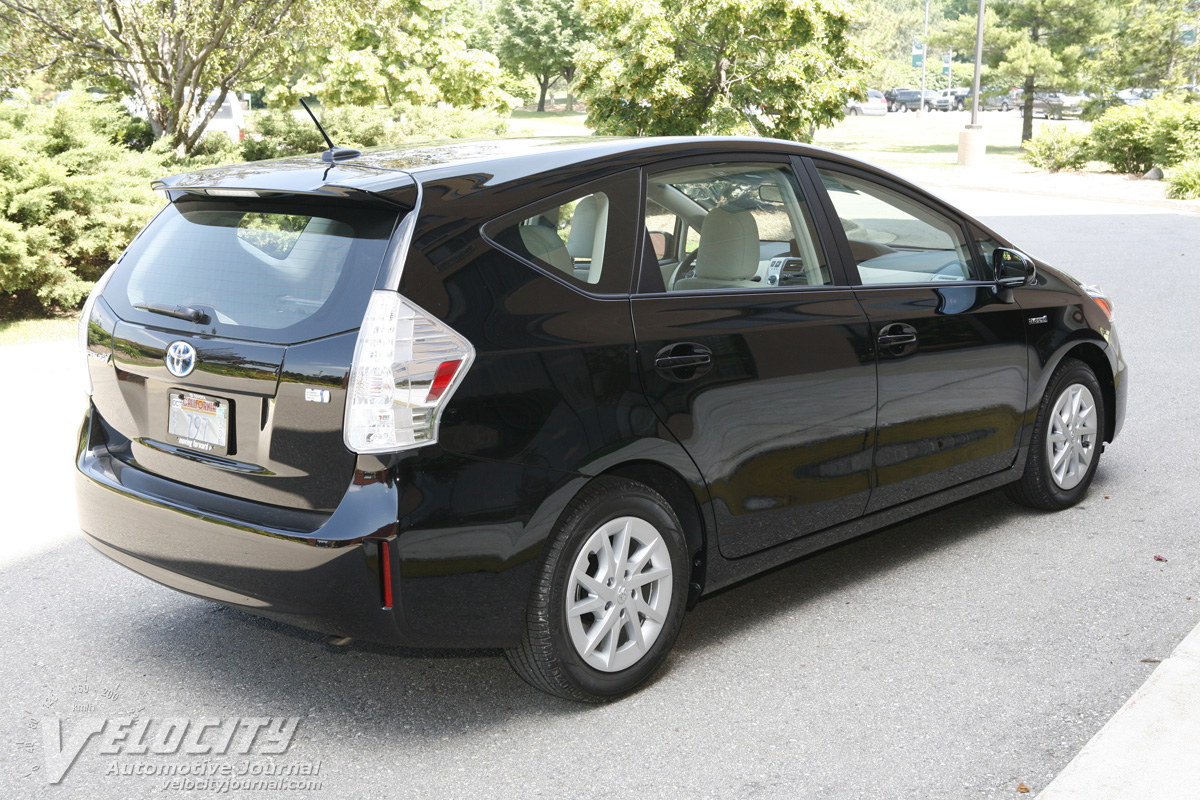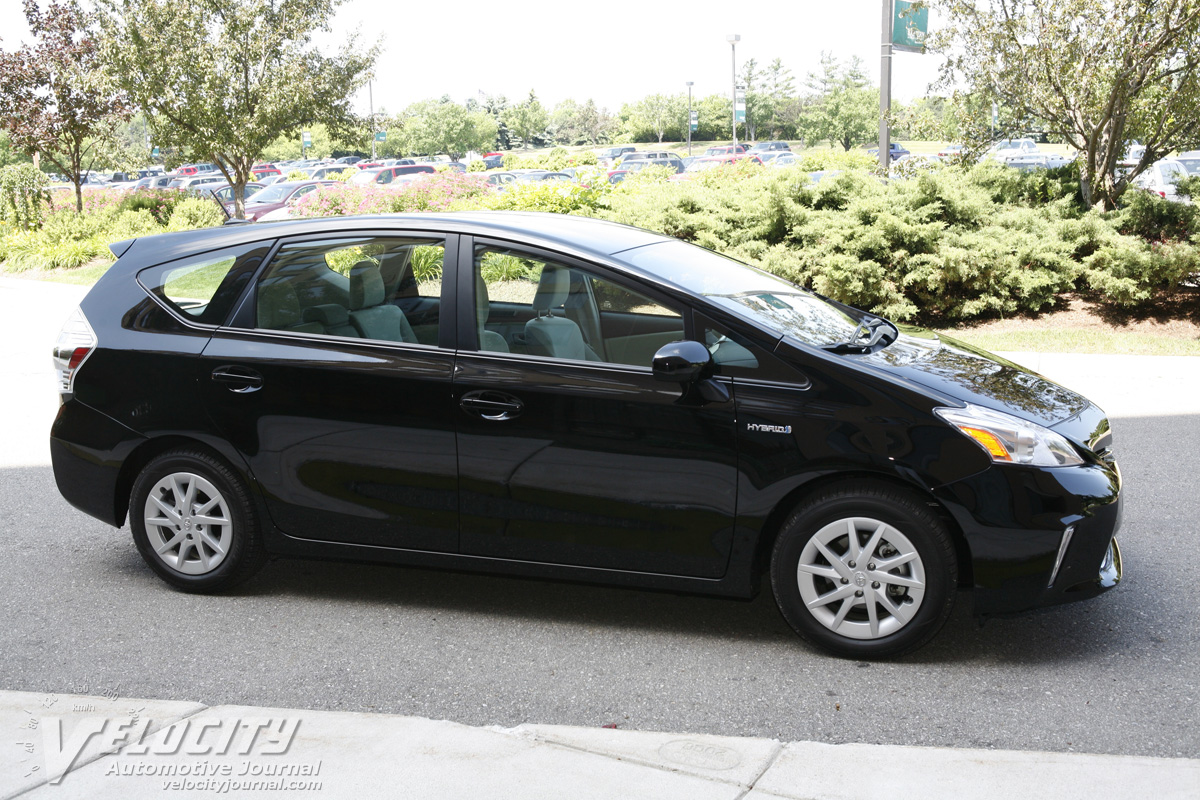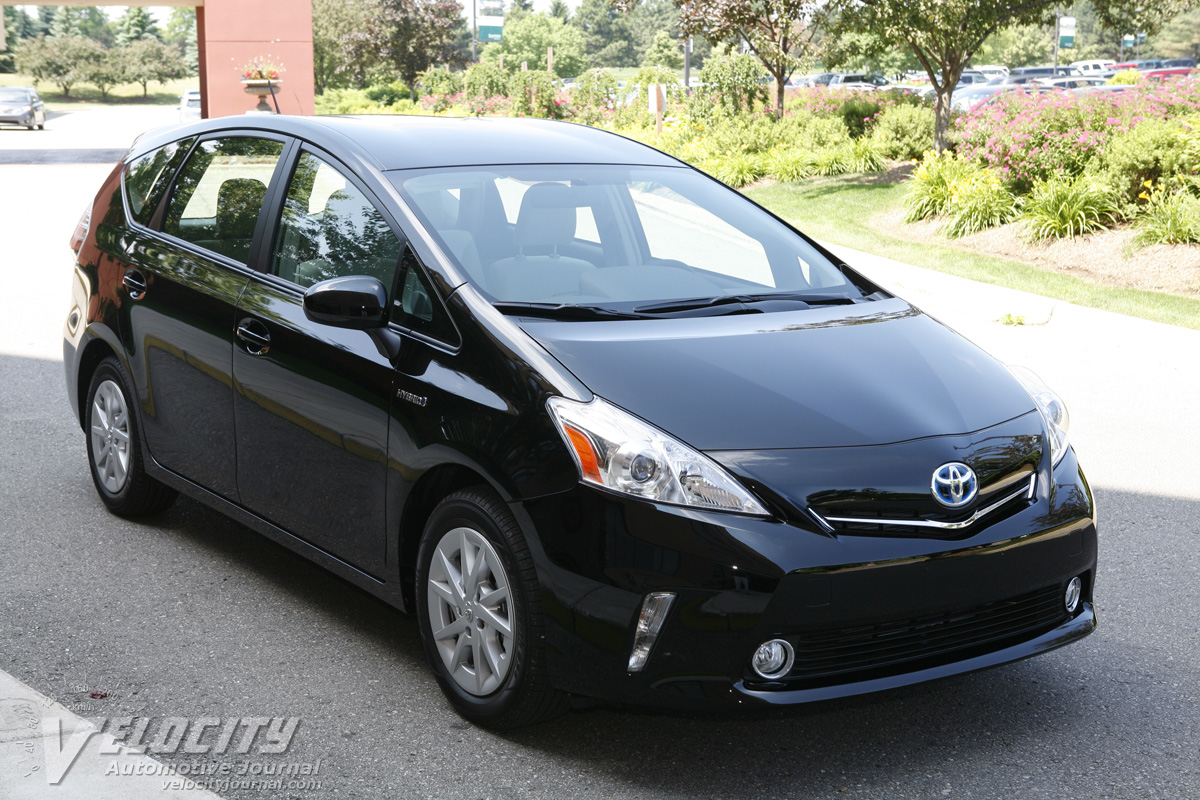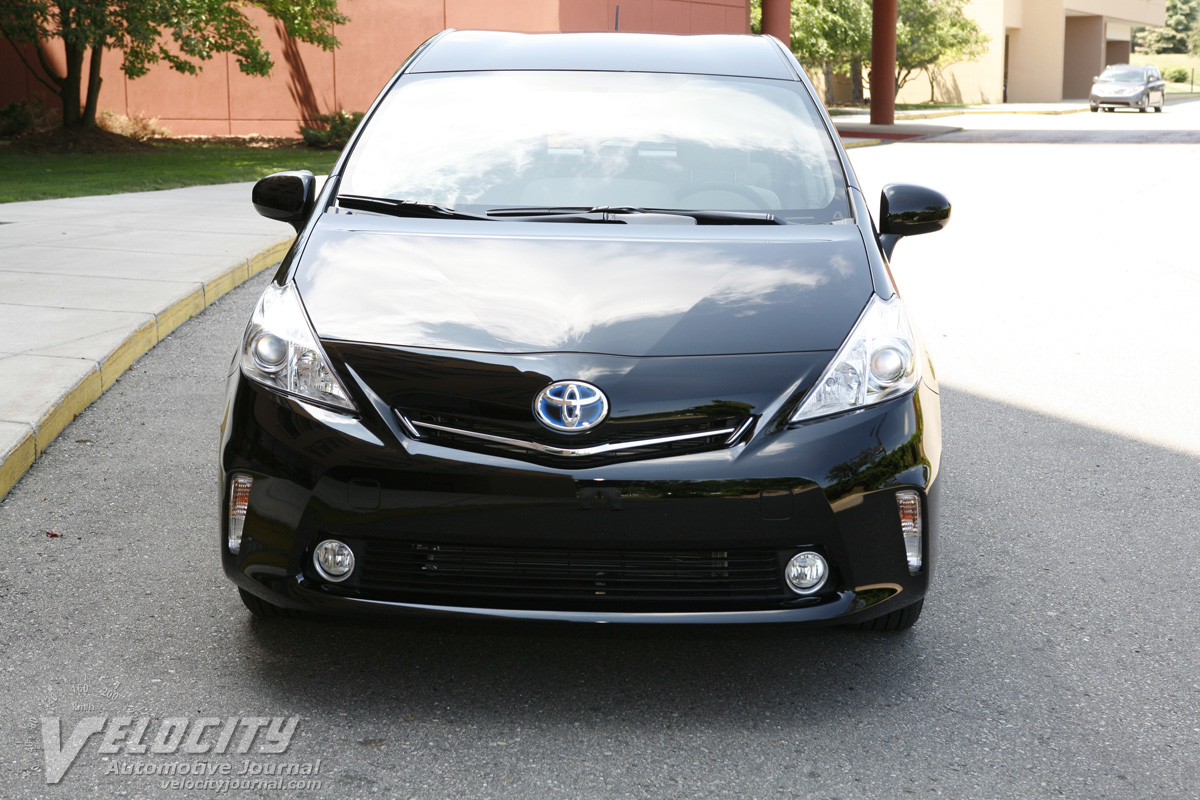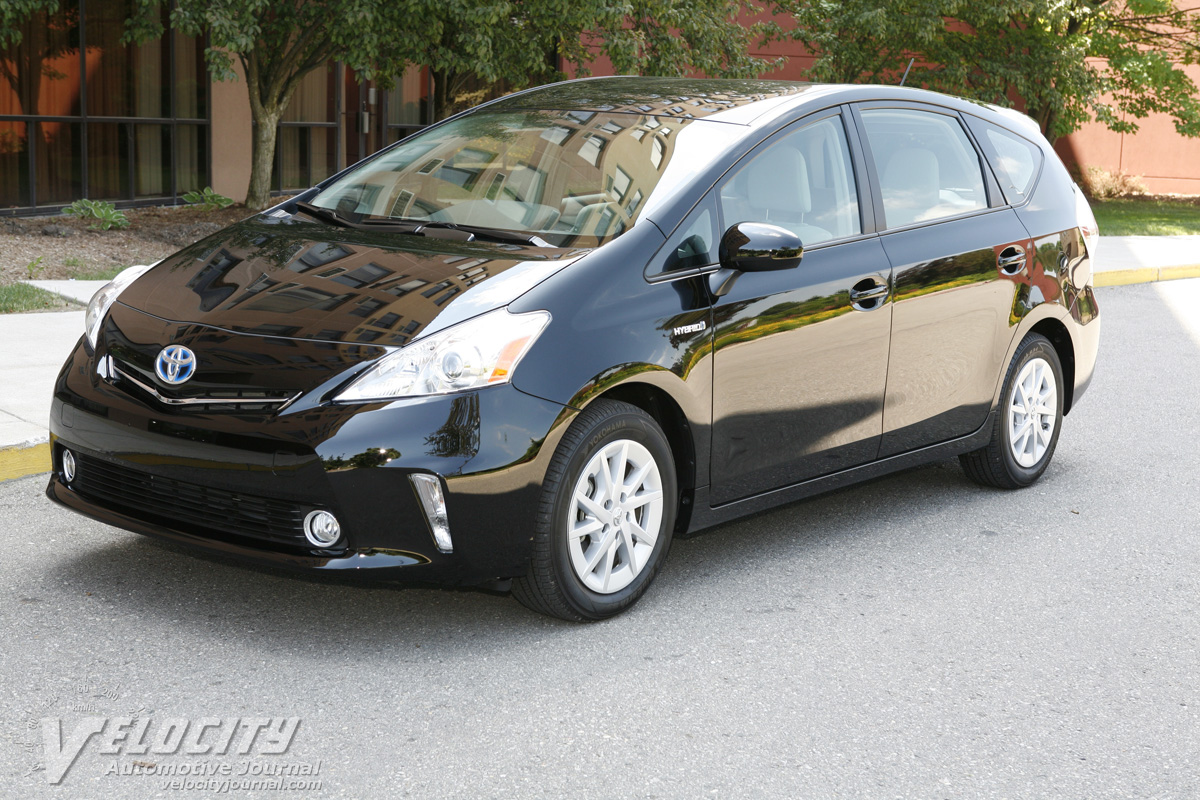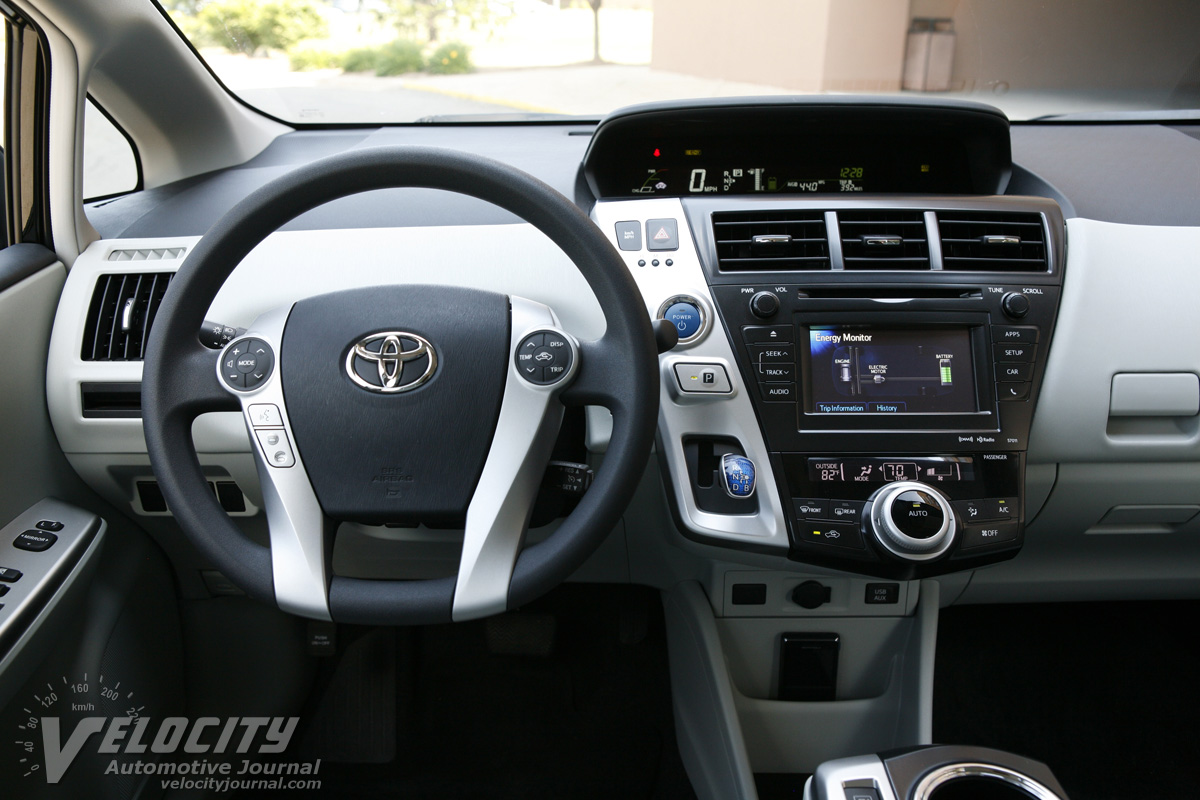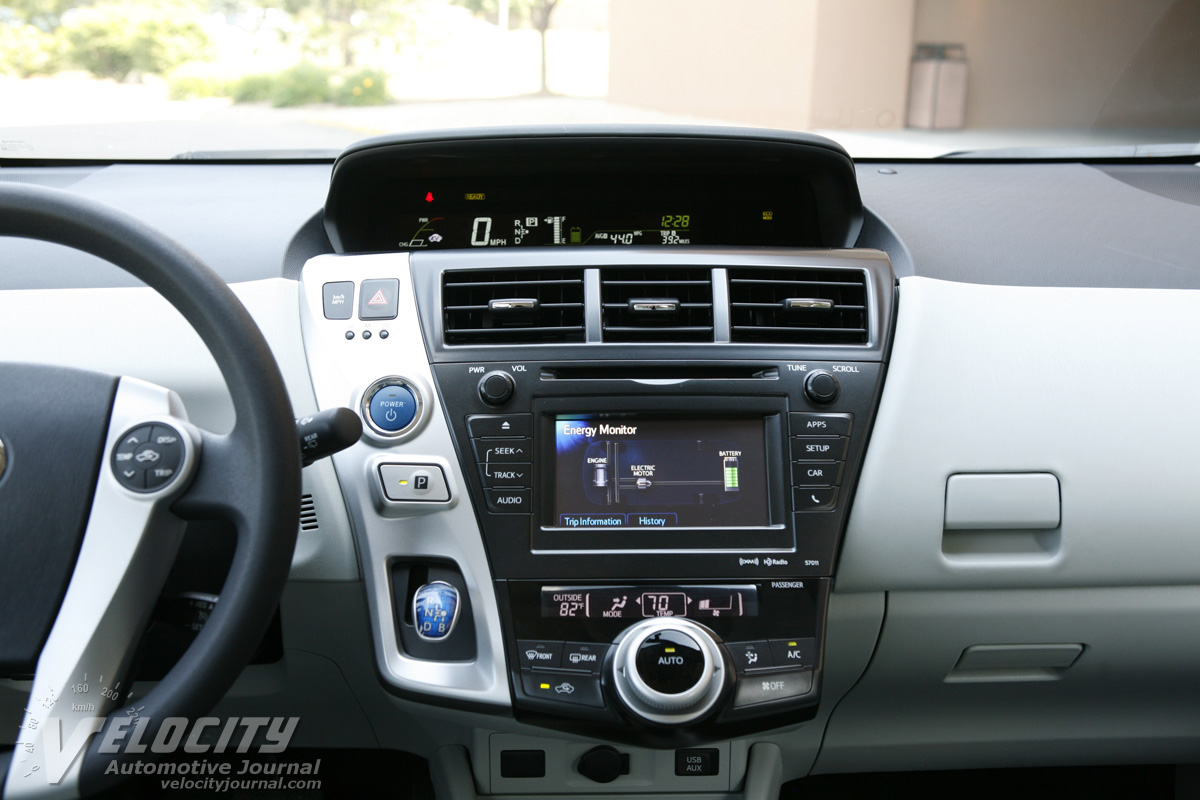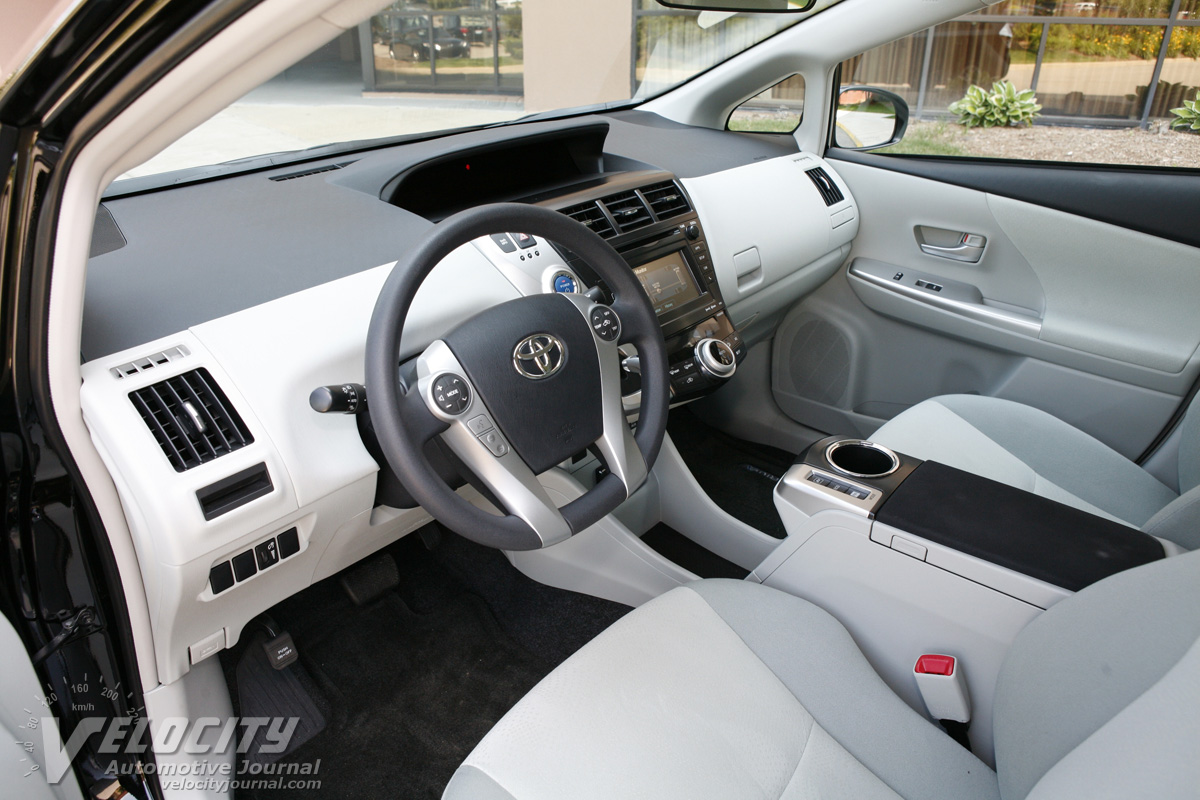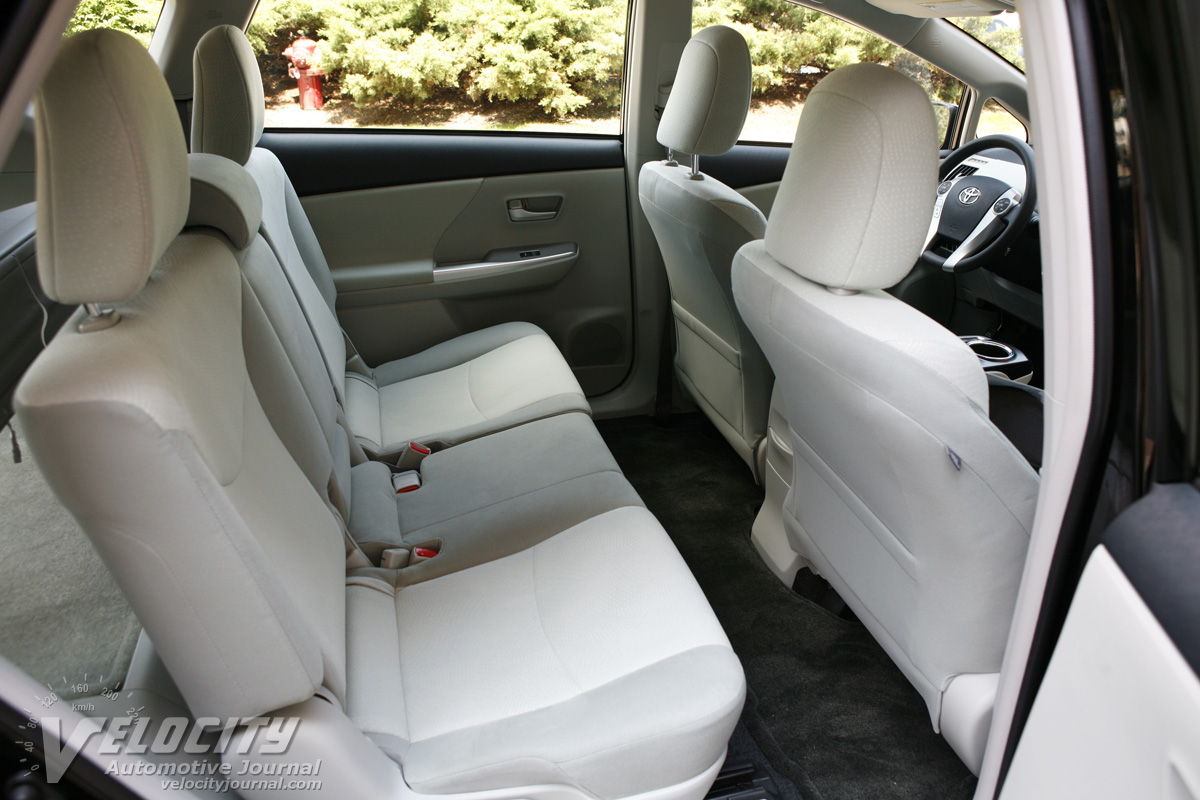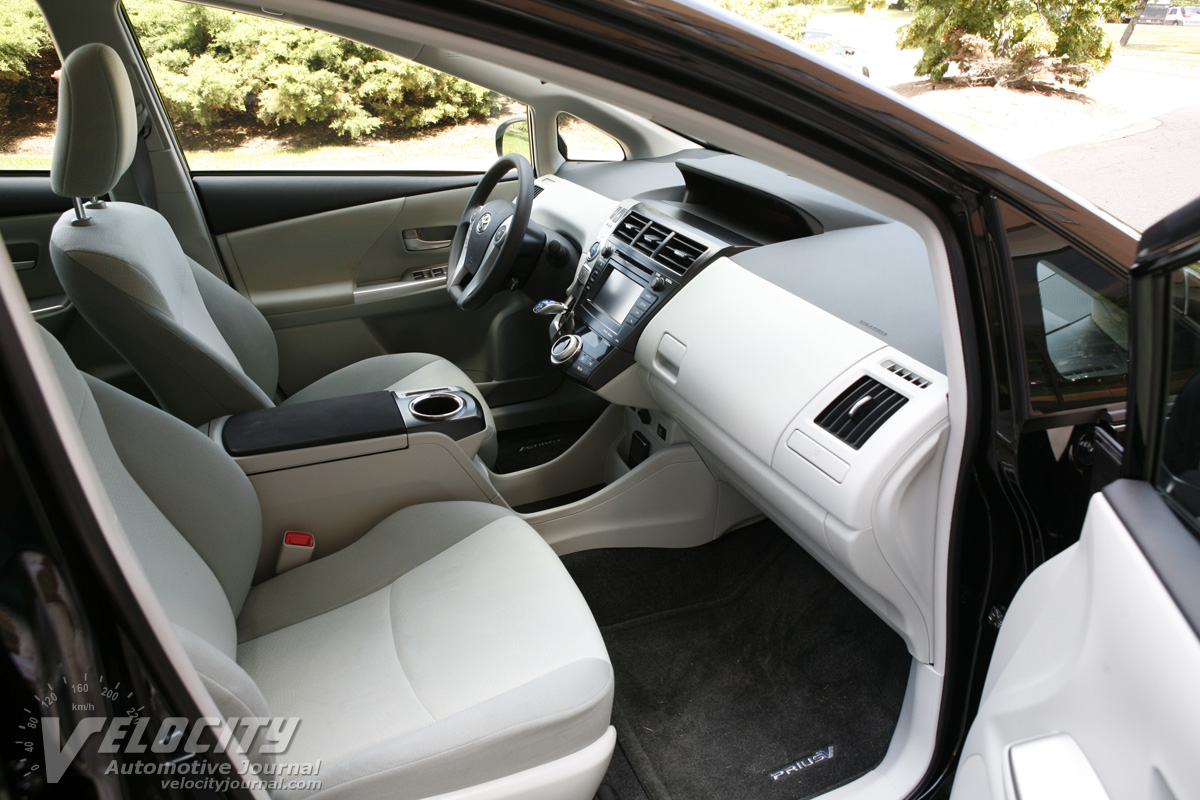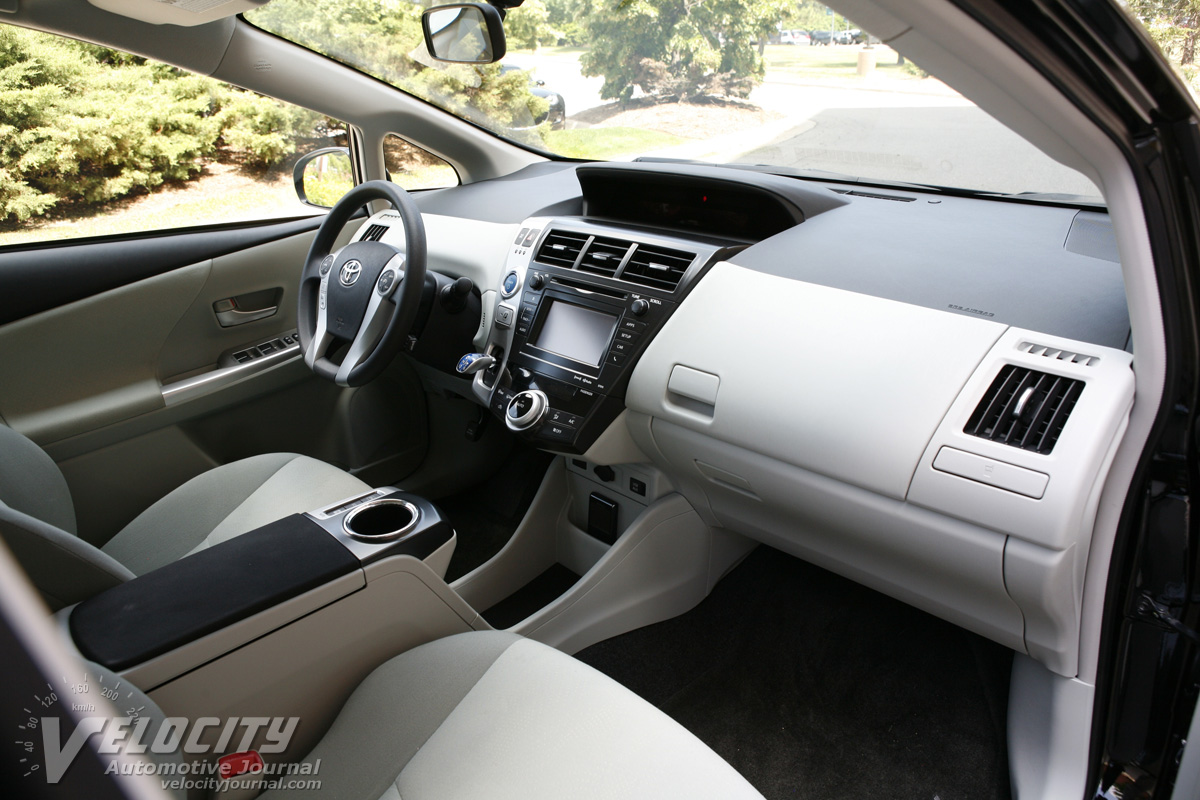2012 Toyota Prius v
12/05/2011
Shahed Hussain
The Prius is rapidly expanding into its own brand of fuel-efficient vehicles using Toyota's hybrid powertrain. Along with the 2012 Prius Plug-in, the Prius v is now the third model in the Prius lineup. Essentially a compact wagon, the Prius v offers the cargo room of a small SUV in a more fuel-efficient package. Not surprisingly, there are no direct competitors to the Prius v, but the VW Jetta Sportwagen TDI is probably the closest, topping the Toyota's highway fuel economy, but giving up the crown to Toyota's super-efficient hybrid technology in urban driving.
The Prius v is available in three models: the base Two ($26,400), midrange Three ($27,165), and premium Five ($29,990). We drove the Prius v Five, which is comprehensively equipped with navigation, JBL audio system, Bluetooth, and the new Entune infotainment system. Other notable features include: 17-inch alloy wheels, LED headlamps, foglamps, and a backup camera.
The Prius v gets a unique dashboard, although the differences are not significant relative to the standard Prius. Among the changes include larger horizontal center vents, different cupholders, and the elimination of the awkwardly placed storage bin under the center stack. A 12V power outlet and USB power port are conveniently located under the climate control display. The shift knob has been moved closer to the driver, and the digital instrument panel is larger and more legible. Although none of these interior enhancements are significant individually, the overall ergonomic improvements are certainly appreciated.
According to Toyota, the Prius v offers more cargo capacity than the Chevrolet Equinox, Honda Element, and Nissan Rogue. Compared to the Prius Liftback, the Prius v has 58% greater cargo space (34.3 cu. ft.). Curb weight is a reasonable 3,274 lbs., but the Prius v gains a substantial 232 lbs. over the standard Prius. The EPA rates the Prius v at 44/40 MPG (city/hwy.), significantly lower than the estimated mileage for the standard Prius at 51/48 MPG (city/hwy.). Even so, the Prius v still exceeds the overall fuel efficiency of any other compact wagon or SUV.
Toyota shares its hybrid drivetrain among all the current Prius models. The familiar 1.8L Atkinson-cycle inline-4 develops 98-bhp @ 5,200 RPM and 105 lb.-ft. @ 4,000 RPM. A 60 kW electric motor cranks out an additional 153 lb.-ft. of torque. The hybrid battery pack powering the DC motor is rated at 201.6V DC with a capacity of 6.5 ampere-hours. Harnessing the output of the gasoline engine and electric motor is an electronically controlled continuously variable transmission (ECVT). Toyota claims the Prius v will accelerate to 60 MPH in 10.4 seconds on its way to a top speed of 103 MPH.
Like its smaller sibling, the Prius v suspension consists of MacPherson struts, coil springs and a stabilizer bar in front; a torsion beam, coil springs, and dampers are at the rear. Four-wheel disc brakes with ABS, VSC (Vehicle Stability Control), and TRAC (traction control) are standard.
When lightly loaded, the Prius v has noticeably stiffer suspension tuning than the current Prius Liftback. Over potholed roads, the suspension transmits impacts from every bump and divot via the steering wheel and seats. For long road trips, we think that the brittle ride would rapidly become fatiguing. Replacing the Yokohama low-rolling resistance tires would likely improve both ride and handling, at the expense of increased fuel consumption. Despite providing cargo capacity for the eclectic accessories and luggage of a typical family, the larger Prius is not an especially comfortable car for piling on freeway miles.
Toyota's addition of the Prius v is a logical expansion of its pioneering hybrid brand, offering the utility of a compact wagon with impressive fuel economy. In this new niche, Toyota has essentially no competition, as no other manufacturer has adopted hybrid technology across its lineup as comprehensively. Nonetheless, it isn't clear if the Prius v will merely cannibalize sales from the standard Prius or attract new customers to Toyota showrooms. Like the other Prius models, the Prius v is certainly not intended for driving enthusiasts, but extracting the maximum mileage from each gallon of gasoline has its own appeal.

